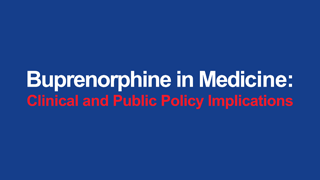Effect of preoperative rectal indomethacin on postoperative pain reduction after open appendectomy
DOI:
https://doi.org/10.5055/jom.2010.0006Keywords:
postoperative pain, indomethacin, appendectomyAbstract
Background: One of the major challenges faced by the treatment planning teams is how to manage postoperative pain. Previous studies agreed upon the effects of preoperative administration of nonsteroidal anti-inflammatory drugs on postoperative pain, but all have focused on patients with surgical noninflammatory diseases (ie, inguinal hernia or breast biopsy). The aim of this study was to evaluate the effects of rectal indomethacin on reducing postoperative pain in patients with acute appendicitis.Methods: It is a simple randomized, clinical trial including 200 patients with acute appendicitis who were divided into two groups (A1 and A2). The case group (A1) received 100 mg rectal indomethacin during 2 hours before the operation. Pain intensity was assessed in all patients using a visual analog scale (VAS). Similarly, total dosage of meperidine analgesic medication and postoperative time to use of rescue analgesia were evaluated.
Results: Patients who received preoperative rectal indomethacin (A1) showed a significant reduction in the VAS score. Also, a reduction in total dose of meperidine and longer time to use of rescue analgesic medication were observed in A1 group.
Conclusion: Preoperative administration of rectal indomethacin in acute appendicitis reduces postoperative pain.
References
Priya V, Divatia JV, Sareen R, et al.: Efficacy of intravenous ketoprofen for pre-emptive analgesia. J Postgrad Med. 2002; 48: 109-112.
Desjardins PJ, Grossman EH, Kuss ME, et al.: The injectable cyclooxygenase-2-specific inhibitor parecoxib sodium has analgesic efficacy when administered preoperatively. Anesth Analg. 2001; 93: 721-727.
Newcomb W, Lincourt A, Hope W, et al.: Prospective, double-blinded, randomized, placebo-controlled comparison of local anesthetic and nonsteroidal anti-inflammatory drugs for postoperative pain management after laparoscopic surgery. Am Surg. 2007; 73: 618-624.
Tuzuner AM, Ucok C, Kucukyavus Z, et al.: Preoperative diclofenac sodium and tramadol for pain relief after bimaxillary osteotomy. J Oral Maxillofac Surg. 2007; 65: 2453-2458.
Ong KS, Tan JM. Preoperative intravenous tramadol versus ketolorac for preventing postoperative pain after third molar surgery. Int J Oral Maxillofac Surg. 2004; 33: 274-278.
Gan TJ, Joshi GP, Zhao SZ, et al.: Presurgical intravenous parecoxib sodium and follow-up oral valdecoxib for pain management after laparoscopic cholecystectomy surgery reduces opioid requirements and opioid-related adverse effects. Acta Anaesthesiol Scand. 2004; 48: 1194-1207.
Akca T, Colak T, Kanik A, et al.: The effect of preoperative intravenous use of tenoxicam: A prospective, double-blind, placebo-controlled study. J Invest Surg. 2004; 17: 333-338.
Budsberg SC, Cross AR, Quandt JE, et al.: Evaluation of intravenous administration of meloxicam for perioperative pain management following stifle joint surgery in dogs. Am J Vet Res. 2002; 63: 1557-1563.
Reuben SS, Steinberg RB, Maciolek H, et al.: Preoperative administration of controlled-release oxycodone for the management of pain after ambulatory laparoscopic tubal ligation surgery. J Clin Anesth. 2002; 14: 223-227.
Marret E, Bonnet F: Perioperative anti-inflammatory drug use: Which evidences for their utility and safety? Ann Fr Anesth Reanim. 2007; 26: 535-539.
Sapolya O, Karamanhoglu B, Memis D: Analgesic effects of lornoxicam after total abdominal hysterectomy. J Opioid Manage. 2007; 3: 155-159.
Kokki H, Salonon A, Nikanne E: Perioperative intravenous ketoprofen neither prolongs operation time nor delays discharge after adenoidectomy in children. Pediatr Anaesth. 2001; 11: 59-64.
Vane J: Towards a better aspirin. Nature. 1994; 367: 215-216.
Veys EM: 20 years experience of ketoprofen. Scand J Rheumatol. 1991; 90: 1-44.
Lee A, Cooper MG, Craig JC, et al.: Effects of nonsteroidal anti-inflammatory drugs on postoperative renal function in adults with normal renal function. Cochrane Database Syst Rev. 2007; 18: CD oo2765.
El-Tahan MR, Warda OM, Yasseen AM, et al.: A randomized study of the effects of preoperative ketorolac on general anaesthesia for caesarean section. Int J Obstet Anesth. 2007; 16: 214-220.
Basto ER, Waintrop C, Mourey FD, et al.: Intravenous ketoprofen in thyroid and parathyroid surgery. Anesth Analg. 2001; 92: 1052-1057.
Tuomilehto H, Kokki H, Tuovinen K: Comparison of intravenous and oral ketoprofen for post-operative pain after adenoidectomy in children. Br J Anaesth. 2000; 85: 224-227.
Rømsing J, Ostergaard D, Walther-Larsen S, et al.: Analgesic efficacy and safety of preoperative versus postoperative ketorolac in paediatric tonsillectomy. Acta Anaesthesiol Scand. 1998; 42: 770-775.
Chin KR, Sundram H, Marcotte P: Bleeding risk with ketorolac after lumbar microdiscectomy. J Spinal Disord Tech. 2007; 20: 123-126.
Meunier A, Lisander B, Good L: Effects of celecoxib on blood loss, pain, and recovery of function after total knee replacement: A randomized placebo-controlled trial. Acta Orthop. 2007; 78: 661-667.
Published
How to Cite
Issue
Section
License
Copyright 2005-2025, Weston Medical Publishing, LLC and Journal of Opioid Management. All Rights Reserved.










